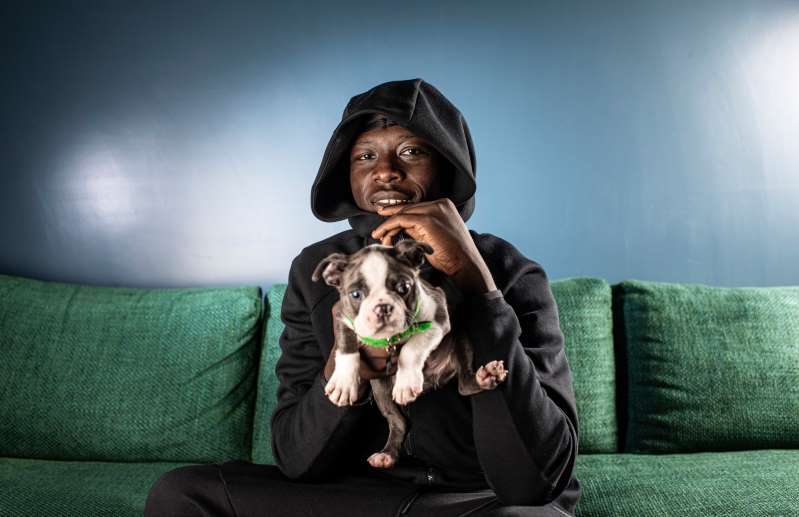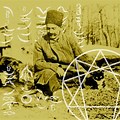When is Hajj and what is the annual Islamic pilgrimage to Mecca about?





When is Hajj and what is the annual Islamic pilgrimage to Mecca about?
Every year millions of Muslims make the pilgrimage to the Kaaba, or the 'House of God', in the sacred city of Mecca in Saudi Arabia.
Over the course of five days, rites of Hajj are performed, in what is considered one of the five pillars of Islam.
Every Muslim is expected to make the pilgrimage at least once in their lifetime.
But when is Hajj this year and how will coronavirus impact the religious gathering? Here's what you need to know...

When is Hajj 2020?
This year, Hajj begins on Tuesday, July 28, and will end on Sunday, August 2.
Why is it important in Islam?
The event also coincides with Eid al-Adha, which marks Abraham's willingness to sacrifice his son Ismael on divine orders.
Over a five-day period, various rituals take place, with pilgrims donning special religious garments and performing a counter-clockwise procession around the Kaaba, a cube-shaped building draped in black silk.
In the eastern corner of the Kaaba lies a black stone, which Muslims believe to be the one that angel Gabriel gave to Abraham.
Pilgrims then touch or kiss the stone as part of the ceremony.
How will this year's Hajj be different?
As has been the case with many events and religious festivals, Hajj will be scaled back this year to curb the spread of coronavirus.
Saudi Arabia's Hajj Ministry said it will only allow 1,000 people already residing in the kingdom to participate in this year's pilgrimage.
Saudi Arabia prepares for scaled-back Hajj amid Covid-19 pandemic
That said, it has been reported that as many 10,000 people could take part.
Guidelines also state that pilgrims must be between the ages of 20-50, and they must be in good health.
Pilgrims from further afield and from different countries will not be permitted to take part in the annual Hajj this year.
Reference: Evening Standard: Emma Clarke 1 day ago
Church of England investigating claim Archbishop of Canterbury failed to act on abuse allegations






Church of England investigating claim Archbishop of Canterbury failed to act on abuse allegations
The church launched an independent review last year into claims the late John Smyth QC had stripped young men naked and beat them violently at the summer holiday camps.
One of those claiming to have been abused has now written to the Church of England, claiming Mr Welby – who worked as a dormitory officer at the camps – had failed to refer the allegations to social services and the police.
Accusing the archbishop of “inaction”, the unnamed man told Channel 4 News: “I find it very difficult to understand why he still has permission to officiate and can still minister.”
A Church of England spokesperson said: “Since a formal complaint has now been received by the National Safeguarding Team, it is reviewing information and will obviously respond on this to the person who brought the complaint and take any further action if needed.”
Archbishop of Canterbury apologises for links to 'child abuser'
The statement added: “These issues will all be considered by the Makin Review which the Church commissioned last year into the Smyth case and is expected to publish into 2021.”
The church launched the Makin Review after alleged victims first came forward in the media in 2017 to accuse Smyth of carrying out sadomasochistic attacks at summer camps run by the Iwerne Trust – an evangelical Church of England organisation.
At the time Mr Welby issued an “unreserved and unequivocal” apology on behalf of the Anglican church and revealed he had worked at the holiday camps.
The archbishop said he became friends with Smyth in the late 1970s, when Mr Welby was a dormitory officer and Smyth was one of the main leaders at the Iwerne holiday camps. Lambeth Palace said they had since exchanged “the occasional card”.
In April 2020, the Titus Trust, which took over the running of the camps from the disbanded Iwerne Trust, said it had agreed a settlement with three men who had suffered what the Trust described as “appalling abuse” by Smyth – who died in 2018.
The unnamed man who has raised the formal complaint against Mr Welby said: “The Makin Review into John Smyth won’t be out until next year, which will be nine years after I came forward.”
He added: “I find it depressing and staggering that the Church of England can take so long to find out the truth about what actually happened.”
Reference: Independent: Adam Forrest 1 day ago: 28th July 2020
David Miscavad says wife of Scientology leader will 'never be free'





David Miscavige's dad says wife of Scientology leader will 'never be free'
The wife of Scientology leader David Miscavige will never be free from the church’s grasp, her father-in-law said in an interview airing Sunday.
TOM CRUISE REPORTEDLY HAD GIRLFRIENDS AUDITIONED BY THE CHURCH OF SCIENTOLOGY
Ron Miscavige, David’s dad, added to “60 Minutes Australia” that no one may ever know the whereabouts of his daughter-in-law, Shelly, who allegedly hasn’t been seen in public for years.
“Shelly, she’ll never be free,” Ron Miscavige, who left the church in 2012, told the TV show, according to 9News.
“These are pretty bad people, but they don’t have a conscience and that lets them do it.”
Leah Remini claims Tom Cruise doled out punishment to fellow Scientologists. People believe that Shelly — once dubbed the “Queen of Scientology” — was banished in 2005 by her husband, who took the church’s reigns in 1986 following the death of founder L. Ron Hubbard.
LEAH REMINI CLAIMS TOM CRUISE PERSONALLY PUNISHED OTHER SCIENTOLOGISTS
Actress Leah Remini, who left the church in 2013, has long been fighting to find out what happened to her friend Shelly. Remini reportedly questioned guests at Tom Cruise’s 2006 wedding to Katie Holmes about Shelly’s whereabouts and filed a missing person’s report with the Los Angeles Police Department in 2013.
LEAH REMINI CLAIMS SHE STILL GETS THREATS FROM THE CHURCH OF SCIENTOLOGY
Detectives closed the case after saying they’d met with Shelly in person, reports said.
Reference: By Tamar Lapin | New York Post
Pa Salieu interview: ‘I believe everything that comes out of my head is spiritual’





Pa Salieu interview: ‘I believe everything that comes out of my head is spiritual’
In February last year, in a freestyle rap titled Next Up? which Pa Salieu performed for the web channel Mixtape Madness, he imagined his own shooting: “Had a dream that I’m dead-up, head top red-up/Must’ve got blown by a two-barrel, uh-oh.”
In the small hours on a Saturday night in late October, it happened. He was outside a pub in central Coventry, where he grew up. “I got shot in the head,” he says. “It was an event organised by one of my first managers. I got advice not to go, but I don’t believe in nothing. I was forgetting, this is Coventry. It pops off in Coventry. There’s gunshots. I could have avoided it but it is what it is. It’s part of the journey. I knew I wasn’t gonna die. It was bad, but something in my head thought, ‘F*** that. This has just started. Ain’t nothing gonna stop me, no way.’ There’s something I’m supposed to do.”
Twenty shotgun pellets connecting with the back of his head in a drive-by attack could have put a premature end to the career of probably the most exciting new voice in British rap. The 23-year-old’s powerful mix of grime and afrobeats styles have put him at the forefront of the latest wave of homegrown British talent along with the likes of Birmingham’s Jaykae, Manchester’s Aitch and Young T & Bugsey from Nottingham, and Londoners AJ Tracey, Tion Wayne, M Huncho and Headie One.
Shortly after the shooting he struck a confident tone, posting a photo from his hospital bed on his Facebook page, and writing on Instagram: “King Salieu will forever get it in. Best believe. Of course I survived this decade. You can’t defeat a man with pure energies.” Three weeks after the incident he was performing at the O2 Institute in Birmingham with Grammy-nominated American rapper GoldLink.

Today he speaks about his close shave in near religious terms, becoming visibly overwhelmed as he attempts to describe the connections between his life and his songs. “I said what was gonna happen to me before it happened. This is why music is so deep to me. I believe everything that comes out of my head is spiritual. This is a message. And you might find me a hypocrite talking all this about gunshots in the songs, but you’re gonna have to hear the pain before you hear any revelations, any goodness. You’re gonna have to hear the truth about what’s happened in my life.”
And soon about the glamour, too. He recently signed a major label record deal with Warner; a few days after we meet, he posts a picture on Instagram of him in a recording studio sitting beside experimental R&B star FKA twigs. A new single, the double A-side Betty/Bang Out, ought to take him much closer to mainstream recognition. Betty in particular is fantastic, a glowering mix of afrobeats and dancehall over which he chants melodically in his thick accent. Bang Out is faster, closer to grime, and takes the surprising step of sampling the voice of Eighties pop star David Sylvian. Pa has earned early comparisons to big-selling London rapper J Hus, who takes influences from his Gambian and Ghanaian heritage, but he has so much energy that I doubt he’ll stay in anyone’s shadow for long.
Pa Salieu is his real name, first and middle, and he was born in Slough as the first child of young parents who had moved from The Gambia. Aged two, he was sent back to West Africa to live with grandparents, so his parents would have increased time to work and could send more money home. “It was the greatest thing they could do. I know my culture,” he says. “We were near the capital city but in the country. It’s a good area. When it’s time to eat, we call our neighbours. Big plates, you know what I’m saying? It’s different. That’s why I’m proud. Maybe that’s why, when I came back here, they labelled me as a bad kid, ’cause I was very prideful of who I am and where I’m from.”
From the age of nine, he was living in Coventry, north of the city centre in Hillfields. His breakthrough song, the most played track of the year so far on BBC Radio 1Xtra, is about the area. It’s called Frontline, a deliberate war metaphor. “Any way you turn you’ll see crack fiends in Hillfields. It’s a weird area. A lot of stuff happens. I’ve never had a bike for more than two months,” he tells me.
The racial mix at his secondary school was predominantly Asian and white. He stood out, and got into trouble. “My accent is strong. I’m Gambian and I’m proud. I didn’t accept getting bullied so I’d try and fight back. The teachers never understood. They thought I was a bad youth. I wasn’t really. There was reasons why I moved the way I did.”
He says he wasn’t permitted to do music at school, but a visit to the home of a friend who had a rudimentary recording and editing setup was an epiphany.
“I literally fell in love with music and the studio,” he says. “There was a point when I wanted to try and do spoken word, because I used to like poetry in school. I used to write a lot on my phone, what I was feeling. I wanted to try this studio. I started freestyling, we recorded it, and I loved the way my voice was on there. Now you can hear what I’m saying.”
He downloaded Instagram and posted a few of these freestyles. “About 40 people showed love. I was like, ‘OK — well, Jesus had 12 disciples.’ It motivated me to carry on.” For the past three years, he’s taken every opportunity to work and record. When we speak he’s in Shepherd’s Bush, where he’s been holed up during lockdown, working with producers via Zoom as well as teaching himself recording techniques. “There was days when I dodged death because I was at the studio. I’m trying to see another life. I swear to God, I feel like I have so much to say.”
He has been vocal on the Black Lives Matter movement and attended protests in London. Last month he posted a long essay on his Instagram profile: “We need to start explaining why our lyrics contain so much pain. Why violence was dropped upon us. This was never our nature,” he wrote.
“I think it will change. This generation ain’t having it,” he tells me. “Here’s an example: if I’m running through my street and I see someone walking ahead, I’ll cross the road. I don’t want them to get scared. I’m a dark guy, I’ve got a hoodie on. They’ll get shook. This is all normal. I know people are afraid of me. It shouldn’t be like this.”
He continues: “I had a friend that died. We called him ‘the hood representative’. Since he died, that’s me. I’m the hood’s representative. I’ve seen everything. There’s so much in my head. I need to speak out. I’m not going home, just kicking back. I’m taking this serious. I know there’s a power you can use with this music thing. I’m just getting myself ready for greatness.”
Reference: Evening Standard: David Smyth 10 hrs ago July 12th 2020
Articles-Latest
- Koran burning conviction sparks fury as blasphemy law 'returns to UK'
- Robert Francis Prevost - Pope Leo XIV
- Pope Francis' death follows recent health challenges. Here's what we know about how he died.
- Easter April 2025 - international Celebrations
- The Rule of the twelve psalms -Worthy is the Lamb
- Religion in Africa Before Christianity and Islam
- 6 The Origin of Yahweh
- Dumo Di Milano
- What Did the Crow Tribe Believe In: Discover The Beliefs!
- 7 Reasons Historic Christianity Rejects the Book of Enoch
- 8 Breathtaking Mountain Monasteries Around the World
- Ethiopian Bible is oldest and most complete on earth
- Muhammad Muhammad was a prophet and founder of Islam.
- World Day of the Poor – SVP Christmas Campaign 2024
- Pope Francis to open 5 sacred portals on Christmas Eve — for a ritual that’s never been done before
- The 144,000 in Revelation
- Over 73 dead bodies 'used for meditation', 600 crocs in a pond, found in two Thai temples
- Occultism: Western Occult Tradition
- What is a Mudra
- Blood Sacrifices: Ancient Rituals of Life and Death
Articles-Most Read
- Home
- Let There Be Light
- Plants that feel and Speak
- The Singing Forest
- The Singing Forest-2
- Introduction
- Meditation
- Using Essential Oils for Spiritual Connection
- Heaven Scent
- Plants that Feel and Speak-2
- Purification
- Making the Spiritual Connection
- Anointing
- Essential Oils: The unseen Energies
- The Sanctity of Plants
- The Aroma Of Worship-Foreward
- The Aroma Of Worship - Introduction
- Methods Of Use
- Spiritual Blending
- Handling and Storage






